Oil filtration for perfectly clean oil. No false promises, only guaranteed results.
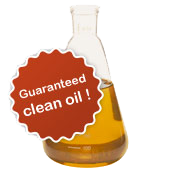
Do you need an oil filter for improving your oil cleanliness?
No problem, you can probably find a filter supplier on every corner. But... what's the point if you don't know if that filter will keep your lubricants clean?
Triple R differs from all other filter suppliers by guaranteeing PERFECTLY CLEAN OIL!
Whatever the application, whatever the contamination level, with a Triple R bypass oil cleaner you can rest assured that you have bought a real and unique solution for your contamination problem.
Long term experience and continuous R&D made Triple R to be the ultimate reference for successful bypass oil filtration.
All TRIPLE R Filter Elements are tested according to the Multipass Test.
Meaning that every µ-rating and beta value we state, is the result of extensive testing performed by an official and certified Multipass Test Laboratory.
Our µ-ratings are always ABSOLUTE (beta x > 75) and never an "irrelevant" NOMINAL value.
Be cautious of counterfeit and untruthful bypass filter manufacturers/suppliers claiming absurd 0,1 µ filter ratings, 2kg particle and 2 liters water absorption capacities!
Being critical today, can save you a lot of trouble later on.
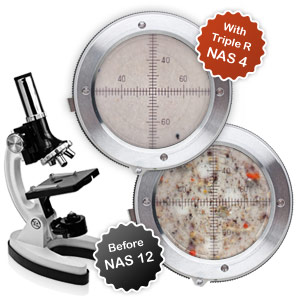
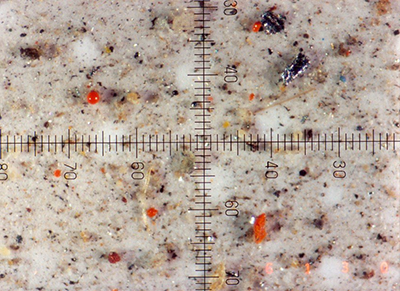
Without bypass filtration
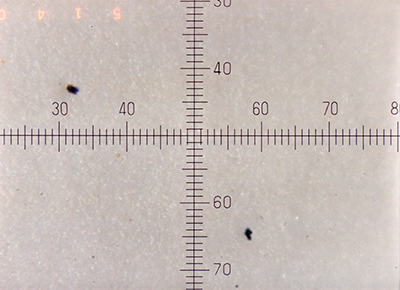
With Triple R
Have a Triple R bypass filter fitted on every single machine and start saving money!
With Triple R bypass filters you can continuously keep your oil perfectly clean and benefit from all theses advantages:
- Longer oil life : increase oil life even up to 50.000 hrs (hydraulic systems) or 2.000 hrs (engine motor oil).
- No pump and valve breakdown : reduce parts failures by >90%!
- Increased life of the expensive full flow filters : they will last from 2x up to 5x longer.
- No sudden or not scheduled machine standstill and production loss; increase production capacity.
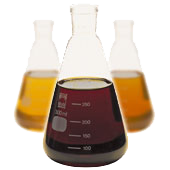
Contaminated oil causes 90% of machine faults and downtime!
Hydraulic fluids lie at the heart of any type of manufacturing equipment. Proper maintenance requires the oil to be filtered, analyzed and replaced regularly. And despite all this, companies still suffer downtime during which pumps, valves, cylinders and seals need to be replaced. It seems pollution of the oil can't be avoided and is an integral part of every hydraulic system.
Even new hydraulic fluid is dirty, and typically contains more than 75,000 solid particles > 5µ per 100ml. Pumps, valves, pipes, hoses, heat exchangers and oil tanks are also delivered with residual dirt from the manufacturing process.
These dirt particles circulate through the system at high speed and pressure, causing abrasive wear, fatigue and erosion. In addition, dirt particles from the surrounding air enter through reservoir breathers and cylinders rod seals, and add to the system's contamination load.
Condensation caused by changes in temperature and leaking oil cooling systems contaminate the oil with water. A combination of metal particles (which act as catalysts), water and oxygen at relatively high temperatures increases and accelerates oxidation of the oil.
During this complex process of oxidation, polymerization causes sticky molecular structures to form, called sludge.
These resinous substances are dark in colour (one of the reason why oil darkens after a period of time) and and stick to many parts of the hydraulic system.
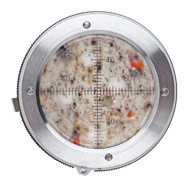
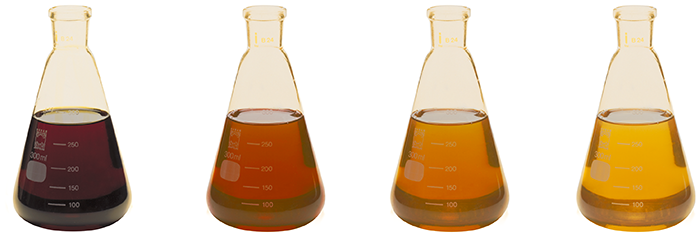
Because these deposited particles are microscopically small, they are not removed by traditional filter systems. And because of their sticky structure and corrosive effect, they have a direct effect on the efficiency and the reliability of the hydraulic system.
